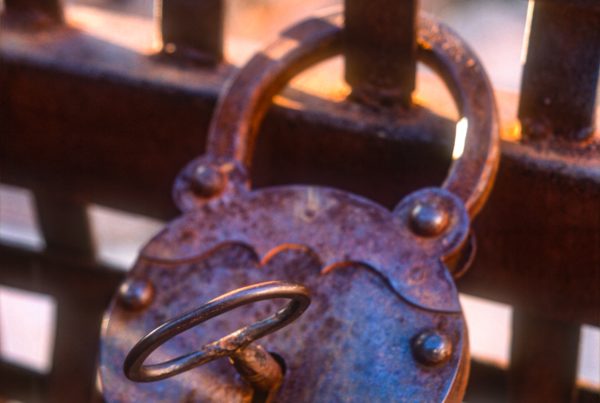The story of Joseph launches the last great section of Genesis with a phrase we have seen before, these are the generations. In these chapters, Joseph’s life unfolds as a living testimony to God’s sovereign power. His father Jacob now resides in the land of Abraham and has no intention of living anywhere else.
He Was Just 17
Joseph spent most of his teen years without his mom, who died giving birth to his younger brother Benjamin. Until Rachel’s passing, with the exception of Leah, the other servant girls were known as concubines, everyone knew Rachel was wife #1. Leah’s death is not recorded, and it is almost certain that if she were alive none of the other women would be known as wives. But now Bilhah (Rachel’s servant) and Zilpah (Leah’s servant) are known as his wives. Bilhah conspired with Rueben sexually and has sought to maintain a powerful place in the family. Most of Joseph’s brothers were much older than him, and those closest to his age were Dan/Naphtali (Bilhah), Gad/Asher (Zilpah).
The chapter opens with Joseph in the apprentice role of shepherd. The Hebrew word for pasturing is also known as the Hebrew word for assisting.
The Robe
Jacob is spoiling his son and it turns out to be prophetic. The colorful nature of the garment stands out against the sea of desert gray and is an obvious statement of royalty. The understandable knee-jerk reaction from the brothers is to ensure they have more of the inheritance than he does. The dying process in the ancient world was not cheap and required lots of effort and work, the garment made a bold statement, and Jacob seems not to care about his others son’s feelings.
They Hated Him
Jacob shows signs of leadership fatigue and is not right in the head. After experiencing great deliverance from Esau, his daughter is raped, his sons murder the rapists and their kin, God changes his name and location, Rachel dies in childbirth, Esau grows stronger and moves away, all taking place within a short period of time. His parenting skills are terrible at best, giving birth to some serious problems. Joseph tells on his brothers, we don’t know the story, but it’s obvious Jacob believed it. The phrase Israel loved Joseph more than any of his other sons was simply stating what everybody knew, and it was not well received by the brothers, nor does scripture advise that kind of parental favoritism. In telling on his brothers, Joseph gains a strong upper hand on them, and not for the last time.
The phrase the brothers hated him appears three times in almost consecutive order—v.4,5,8, but in reality, they are angry at their father. As is about to unfold, they don’t just hate Joseph, they happily will kill him.
Back To Back Dreams
Joseph has two back-to-back dreams which are making the same point, he will someday be a great ruler, but the text does not say whether those dreams are of God or simply something he fantasized about.
Dream #1 is about a single stalk of grain that was on the ground but rises and stands up tall, the other stalks recognize its greatness and bow down to it. Nobody missed the point, Joseph as one of the youngest sons was going to end up watching his much older brothers bow down to him. While it’s going to happen, that day is a long way off, and the journey to it is a trail of tears.
Dream #2 borders on blasphemy, except it’s true. Joseph will play such a powerful role even the cosmos will bow down and recognize his greatness. Many commentators foolishly trip over Jacob acting as if Rachel was still alive, I often wonder if academics have a soul. To Jacob, his dead wife, the love of his life, is a present reality, which is exactly how people in his situation think and act. Jacob is also trying to shame the young dreamer, at last to some degree, by mentioning Rachel.
Those 11 Stars speak clearly to God’s grand vision for Joseph, and the imagery points to Israel being prophetically understood in Revelation 12:1.
Jacob, though he gave a public rebuke to young Joseph, nonetheless kept the saying in mind, as if to see what God might do. He had no idea what was coming.
Why Go Toward Shechem?
The brothers no doubt had bloodthirst and trouble on their minds. They had enormous opportunity to graze on perfect pasture land, away from Shechem, but chose to graze Shechem, either looking for a fight, sex, or both. A good bit of the male population in Shechem was assassinated by them so it’s possible the brothers are interested in seeing how things are going. Their father knows this and is right to be worried.
One possible and legitimate reason the brothers may have gone to Shechem, is to check on the land their father bought from the sons of Hamor (Genesis 33:19). This took place peaceably before the rape of Deborah. On that land, Jacob pitched a tent and erected an altar, so the idea of going to check on your investments is within the realm of possibility. This plot of land would ultimately mean a lot to the tribe, decades later Joseph’s bones would be buried here (Joshua 24:32).
It seems Shechem was not worth the bother, so the brothers took their flocks north and settled in an area just south of Meggido called Dothan. Years later Elisha will walk the streets of Dothan and ask the Lord to open the eyes of his servant, who will see chariots of fire all around him (2 Kings 6:17).
Joseph Is Sent Out
He goes to Shechem and does not find his brothers, and to his credit presses on and finds them in Dothan.
The text plainly says Come now let us kill him and throw him into one of the pits. Joseph’s brothers’ hearts are cruel and plainly wicked. Rueben steps in and argues for keeping him alive by throwing him into a pit, but he is weak and deceived. Instead of defending his younger brother against evil, he tries to have it both ways, and the plan backfires on him. Rueben’s moral authority is obviously weak, he is sleeping with his father’s wife and all the brothers know it. This is likely why the brothers listen to him in one way but not another.
The stripping off of Joseph’s garments and his betrayal at the hands of his brothers, even the money that is exchanged, is a prophetic glance toward Christ’s passion week. Arguably the most damning passage in the entire account is v.25, after throwing Joseph in what likely was a dry well, they sit down to eat and enjoy themselves.
Who Sold Who
The brothers did not actually sell Joseph into slavery, the Midianites did, but the brothers are guilty of the whole affair. Having moved a good bit northwest toward a major trading route, some Midianites pulled Joseph out of the pit and sold him to the Ishmaelites, who are by blood distant relatives. The description of gum, balm, myrrh is not something the brothers would have known, it is Joseph’s personal recollection of what was in the caravan. Decades later Moses will flee to Midian and marry one of their daughters.
The Midianites joined the Ishmaelite caravan and brokered the sale of Joseph into Potiphar’s household.
Back home the brothers callously deceived their father, and happily let him weep as only a man can weep who has lost his beloved son.
When the story is over, God will expose every sin, and bring all righteousness into the light of his glory and grace.





